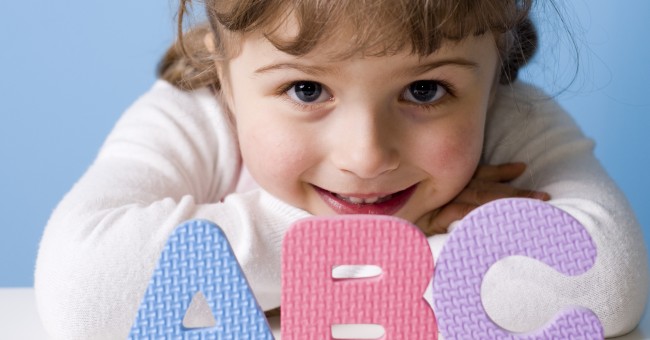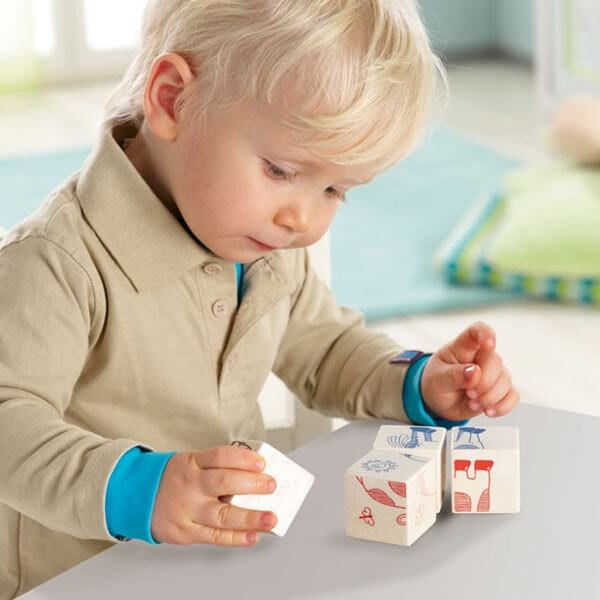4 Tips to Understanding Your 2-Year-Old


Reviewed and approved by the psychologist María Alejandra Castro Arbeláez
Every father or mother talks about the two’s as a difficult or even daunting stage in their children’s life. The truth is, understanding your two-year-old child can be an impossible mission. For those who have not yet faced this stage, this may seem like an exaggeration. But those who have lived through it will understand perfectly what we’re talking about.
The problem is that we go about it the wrong way. “It’s an issue of having the right attitude” is what parents who have experienced these battles will affirm. It’s impossible to understand a child’s particular world through the acute viewpoint of an adult. As adults, we need to be more flexible.
And for good reason. It just so happens that, at this age, children don’t have the ability to put themselves in someone else’s place. And they are far from being able to measure the consequences of their actions. But this little one’s future depends on our reactions as parents.
Therefore, in this You Are Mom article, we bring you a series of relieving tips that will help you understand your two-year-old child. Only then will you be able to face this period that can become any parent’s nightmare.
Create a distance between your child’s action and your reaction
-Anonymous-
4 tips for understanding your two-year-old

- Your child doesn’t understand limits. This age is all about pushing social norms. Little ones test their parents. They measure them. They study what happens if they kick a table. They play with their food, they scatter their toys and refuse to pick them up, they throw things on the ground, they take off their shoes and they even take off their clothes. Your child may promise over and over again that they won’t do it again, but they are compulsive repeat offenders. Your child plays, analyzing where the limit is, as a way to feel reinforced and valued. The best option is to ignore his misconduct and, in turn, reinforce him when he obeys.
- Your child doesn’t understand the dimension of punishment. Many times you may feel that it’s impossible to understand your two-year-old. Simply put, he’s used up all your patience, he’s worn you out, and now you don’t know what to do. When you threaten him, he doesn’t seem to care much. But when you follow through with the threats, he turns into a pool of tears. If you think your child doesn’t understand you or can’t differentiate between negative and affirmative, you’re wrong. He just doesn’t know the consequences of his actions, nor what the firmness of a punishment implies. Don’t offset consequences. Act immediately so he can observe the relationship between cause and effect.
- Your child remains stone-faced instead of showing gratitude. Since your child doesn’t know how to share, you decide to give him a gift – those toys he’s always fighting with his cousins and friends over. Does your little one’s reaction to this tremendous surprise leave you perplexed? Don’t worry, it’s not that he’s not happy. It’s just that he feels taken off guard. He’s overcome by new feelings he’s never felt before: Gratitude and immense happiness. In this case, all you can do is wait for your child to grow up so that you can witness his joy when he receives something he desires.
- Answers that leave you feeling empty handed. If your child, despite being talkative, only responds to concrete questions, relax. This is a common reaction at this age. It’s hard for your child to summarize or synthesize when faced with more “open” questions that require further development. Therefore, since she doesn’t know how to prioritize, or she doesn’t know where to begin, she chooses silence. The solution is simple: make your questions more specific and less open-ended. Another common response to our questions is “what?” Don’t worry. Your child is just asking for more time to process the question. Her attention is volatile and she is highly distractible at this age. Draw her attention to your question and speak slowly.
Understanding your two-year-old: Difficult, but not impossible

As you can see, each of your little one’s behaviors has a reason behind it. Try to keep your calm to be able to understand your two-year-old. The solution to those details that so often leave us desperate as parents are much simpler than you think!
We talk about “the terrible twos”, treating this age as something complicated and to be feared. However, with a little patience, will-power, dedication and sacrifice, you’ll find that getting through this stage is far from impossible. So how about you, mom? Can you identify with these issues? What solution have you found to the common problems related to this stage?
Every father or mother talks about the two’s as a difficult or even daunting stage in their children’s life. The truth is, understanding your two-year-old child can be an impossible mission. For those who have not yet faced this stage, this may seem like an exaggeration. But those who have lived through it will understand perfectly what we’re talking about.
The problem is that we go about it the wrong way. “It’s an issue of having the right attitude” is what parents who have experienced these battles will affirm. It’s impossible to understand a child’s particular world through the acute viewpoint of an adult. As adults, we need to be more flexible.
And for good reason. It just so happens that, at this age, children don’t have the ability to put themselves in someone else’s place. And they are far from being able to measure the consequences of their actions. But this little one’s future depends on our reactions as parents.
Therefore, in this You Are Mom article, we bring you a series of relieving tips that will help you understand your two-year-old child. Only then will you be able to face this period that can become any parent’s nightmare.
Create a distance between your child’s action and your reaction
-Anonymous-
4 tips for understanding your two-year-old

- Your child doesn’t understand limits. This age is all about pushing social norms. Little ones test their parents. They measure them. They study what happens if they kick a table. They play with their food, they scatter their toys and refuse to pick them up, they throw things on the ground, they take off their shoes and they even take off their clothes. Your child may promise over and over again that they won’t do it again, but they are compulsive repeat offenders. Your child plays, analyzing where the limit is, as a way to feel reinforced and valued. The best option is to ignore his misconduct and, in turn, reinforce him when he obeys.
- Your child doesn’t understand the dimension of punishment. Many times you may feel that it’s impossible to understand your two-year-old. Simply put, he’s used up all your patience, he’s worn you out, and now you don’t know what to do. When you threaten him, he doesn’t seem to care much. But when you follow through with the threats, he turns into a pool of tears. If you think your child doesn’t understand you or can’t differentiate between negative and affirmative, you’re wrong. He just doesn’t know the consequences of his actions, nor what the firmness of a punishment implies. Don’t offset consequences. Act immediately so he can observe the relationship between cause and effect.
- Your child remains stone-faced instead of showing gratitude. Since your child doesn’t know how to share, you decide to give him a gift – those toys he’s always fighting with his cousins and friends over. Does your little one’s reaction to this tremendous surprise leave you perplexed? Don’t worry, it’s not that he’s not happy. It’s just that he feels taken off guard. He’s overcome by new feelings he’s never felt before: Gratitude and immense happiness. In this case, all you can do is wait for your child to grow up so that you can witness his joy when he receives something he desires.
- Answers that leave you feeling empty handed. If your child, despite being talkative, only responds to concrete questions, relax. This is a common reaction at this age. It’s hard for your child to summarize or synthesize when faced with more “open” questions that require further development. Therefore, since she doesn’t know how to prioritize, or she doesn’t know where to begin, she chooses silence. The solution is simple: make your questions more specific and less open-ended. Another common response to our questions is “what?” Don’t worry. Your child is just asking for more time to process the question. Her attention is volatile and she is highly distractible at this age. Draw her attention to your question and speak slowly.
Understanding your two-year-old: Difficult, but not impossible

As you can see, each of your little one’s behaviors has a reason behind it. Try to keep your calm to be able to understand your two-year-old. The solution to those details that so often leave us desperate as parents are much simpler than you think!
We talk about “the terrible twos”, treating this age as something complicated and to be feared. However, with a little patience, will-power, dedication and sacrifice, you’ll find that getting through this stage is far from impossible. So how about you, mom? Can you identify with these issues? What solution have you found to the common problems related to this stage?
All cited sources were thoroughly reviewed by our team to ensure their quality, reliability, currency, and validity. The bibliography of this article was considered reliable and of academic or scientific accuracy.
- De Piaget, T. D. D. C. (2007). Desarrollo Cognitivo: Las Teorías de Piaget y de Vygotsky.
- Etxebarria, I. (2003). Las emociones autoconscientes: culpa, vergüenza y orgullo. EG Fernández-Abascal, MP Jiménez y MD Martín (Coor.). Motivación y emoción. La adaptación humana, 369-393.
This text is provided for informational purposes only and does not replace consultation with a professional. If in doubt, consult your specialist.








